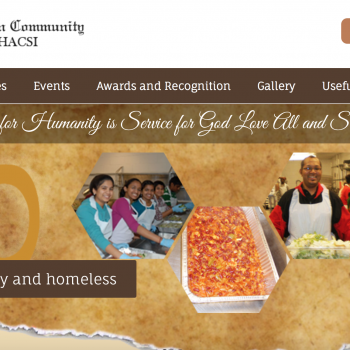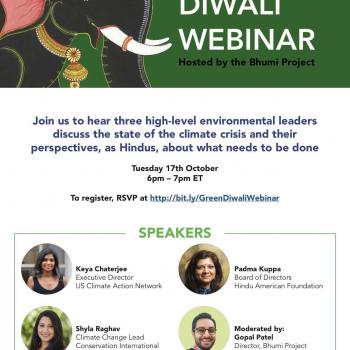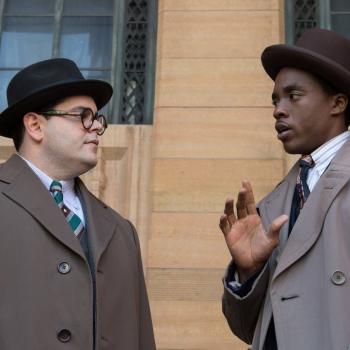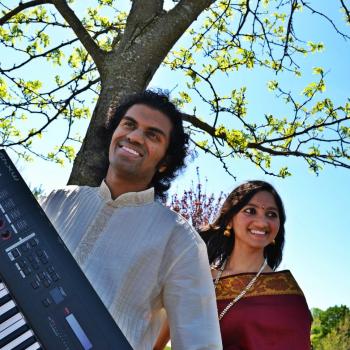For me, pluralism is a verb, like tolerate and understand.
May is an eventful month for me in metro-Detroit’s interfaith landscape. In fact, the National Day of Prayer, traditionally held on the first Thursday in May, was what put me in a prominent place as an interfaith advocate. In my last column, I wrote about the Troy Community Coalition’s annual Faith Community Prayer Breakfast, which led to incidents that helped me co-found the Troy-area Interfaith Group. When this organization held its 8th annual National Day of Prayer event, I wasn’t in attendance: I was stepping down from the board of the women’s non-profit, WISDOM, another organization in which I have played an active role since its formation. If I am such an interfaith advocate, why am I missing major interfaith events and stepping down from leadership in interfaith organizations?
The answer lies partly in a Facebook exchange with another immigrant mom in my hometown of Troy. The comments started when I posted my essay, “Glimmers of Hope,” with its content explained as follows: “When I read about conversion on the other side of the world, and the lack of balance and awareness amongst those in power, it makes me question whether interfaith interaction can really work.” My friend’s initial sentence partially echoed my belief: “My problem with interfaith work is the emphasis it places on making one’s own faith better understood rather than coming to a realization that we don’t have to understand each other’s faiths to accept that other people’s lives are enriched by their faith even when it is not the same as our own; we don’t have to understand it, though we may choose to.”
Her charge that by becoming an advocate for a particular faith, one is really undermining the goals of dialogue, however, is one that I had to disagree with. As a Hindu, I come with the realization that my way is not the right way for everyone, and an acceptance that others’ lives are enriched by different beliefs and practices.
When people come to the interfaith table, they usually come with curiosity and with a certain attitude toward, or understanding of, faiths other than their own. The rare Hindu at the interfaith table has to take on the responsibility of dealing with how our beliefs are misrepresented, stereotyped, and generally explained in an Abrahamic context—something that often doesn’t work for the Eastern or dharmic traditions.
My interfaith journey began with explaining and clarifying what I believe and trying to dispel a number of outlandish notions that people have about Hinduism. Over the years, I have often participated as a panelist in WISDOM’s signature presentation, “Five Women, Five Journeys: How Different Are We?” Several women of WISDOM answer the same three to five questions related to their personal faith journeys, in front of an audience, and both the panel and audience walk away feeling more connected through their religious similarities and our common humanity. I have helped organize interfaith events like the National Day of Prayer or the World Sabbath for Religious Reconciliation, where we share prayers and spiritual practices, and serve the common good by supporting Kids Against Hunger and Habitat for Humanity. I agree with my friend Randa that “the kind of interfaith work that would make the struggle meaningful would have to translate into efforts that result in bringing people together.”
A few years ago, I joined the Executive Council of the Hindu American Foundation, an organization that has been a leading voice for Hindu American advocacy: standing up and speaking out on issues that are relevant to Hindus in America and around the world. Sheetal Shah, Sr., Director at the Foundation, has explained what we do and the importance of advocacy, bringing to light the human rights abuses and issues faced by Hindus, and how we’ve been confronted with the questions whether we are “Hindu Sunni or Hindu Shia.”
The Hindu American Foundation promotes tolerance, understanding, and pluralism, a journey that most at the interfaith table have embarked upon. First, we are willing to have the other at the table (tolerate), then we take the time to know who they are (understand), and finally we accept (pluralism). For me, pluralism is a verb, like tolerate andunderstand. At the local, national, and international level, I encounter those who believe that their faith is the correct or true one, and whose efforts to convert are often tangled in a complicated web of power involving race, colonialism, and economics.
As a Hindu, whose foundational beliefs include the concept of pluralism—the idea that others have their own spiritual path, different from mine—I have to add another verb:advocate. Advocacy is what brings to light issues for those who voices are not heard or not known. To strive for pluralism, we must first acknowledge these issues and the differences, and then move beyond them. Thankfully, there are other Hindus who have joined me in these efforts, participating in the National Day of Prayer, hosting visitor groups at the temple, and supporting Habitat for Humanity. They have allowed me to step away, and also step up in a different way. My interfaith journey has allowed me to seek a place at the table, to help people understand, and now to be an advocate for pluralism.














